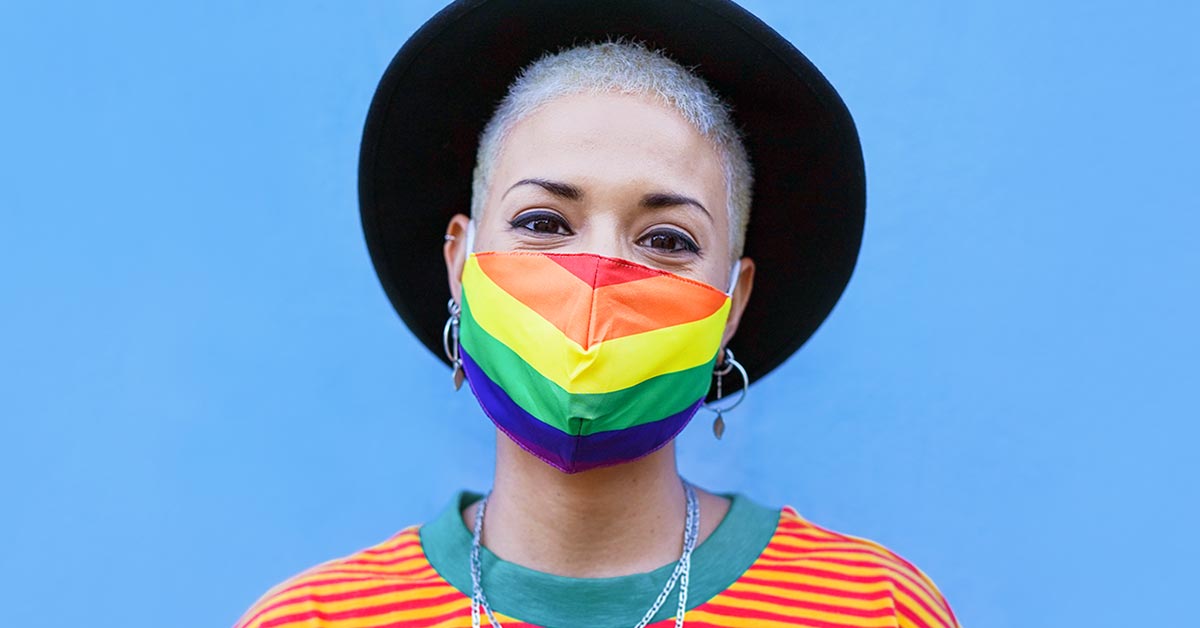How to prioritise your mental wellbeing during the pandemic

For many of us in the LGBTIQ+ community, our mental wellbeing has taken a knock during the pandemic.
Statistics constantly confirm what members of the LGBTQI+ community already know: we are far more likely to experience mental health challenges than the general public.
When we still see and experience vile instances of homophobia, transphobia and violence perpetrated against the community, despite the great gains we have made over the past few years, it is easy to understand why we would feel more anxious and depressed.
It stands to reason, then, that the onslaught of the global pandemic would also be particularly detrimental to our already compromised mental health.
More than a year after we first became aware of Covid-19, many of use may be feeling the strain now more than ever. While seeking assistance from a mental health practitioner is always advisable if you find yourself struggling, it’s important to again highlight a few things each one of us can incorporate into our daily lives to help keep our boats afloat amid the storm.
Pay attention to the things that are within your control
No doubt, the general state of the world seems more than a little out of sorts, with no signs of anything settling down anytime soon. You might have found yourself struggling to cope with those things that are actually within your control, though. Consider that this might be because you are overly concerned with things you truly have no control over.
In this regard, try to focus on the things in your life that you do actually govern, and which add value to your day-to-day. You can decide which media you consume, and how much of it. You can make a choice to prioritise your own physical and mental health. You can wash your hands and wear a mask.
Once you’ve made a decision to start feeling less responsible for things you bear no responsibility for, it’ll be easier to implement other small changes that make a big difference.
Feel your feelings
Many of us tend to suppress negative emotions or escape them altogether by self-medicating, or in other ways that are not sustainable over the long term. In an article for them, psychotherapist Andrea Glik says that current circumstances lead us to experience trauma without completing the stress response cycle. We react to the challenges we face like antelopes who are retreating from a lion, but do not deal with the trauma after experiencing it.
Says Glik, “After the antelope gets away or is free from the lion, it shakes off its body, literally releasing the stress (in the form of cortisol and adrenaline) through movement.” She recommends that we incorporate self-care practices into our lives to complete this cycle, releasing the stress “after every new trigger, piece of information, hour of the day as things progress: breath (breathing is movement), jumping jacks, plank pose until our arms shake (we can also be just like the antelope and shake too!), journal (writing is still release and movement), sigh, push against a wall, or just ask your body what it needs to do and do THAT.”
Take a walk
Sure, all you really want to do now is hole up and wait for someone to wake you up when it’s all over – but getting out in nature is consistently cited as a great mental health pick-me-up. Aside from providing you with welcome vitamin D, a walk in nature is also among the activities that carry the least risk to contract the virus, even if you do it with someone else.
Consider meditation
Mindfulness meditation is all about learning to be in the moment and calming your mind. (And that sounds exactly what we all need right now.) These meditation practices are usually based on breathing techniques to help manage our chaotic thoughts. There are plenty of online resources on how to do this. During the pandemic, many have turned to apps like Headscape and Calm for guided meditations, both of which we can recommend.
Reach out
There really is something to be said for sharing your experiences with someone you can trust. Simply articulating your struggle to someone else does a great deal to make the weight you’re carrying feel less heavy. Speak to your friends and reach out if you feel like the burden is becoming too much to bear.
Remember that there are many organisations you can contact to gain access to professional mental health services. You are never alone.
In an emergency, please call Lifeline’s 24-hour counselling line on 0861 322 322 or the South African Depression and Anxiety Group’s Suicide Crisis Line on 0800 567 567.
Leave a Reply